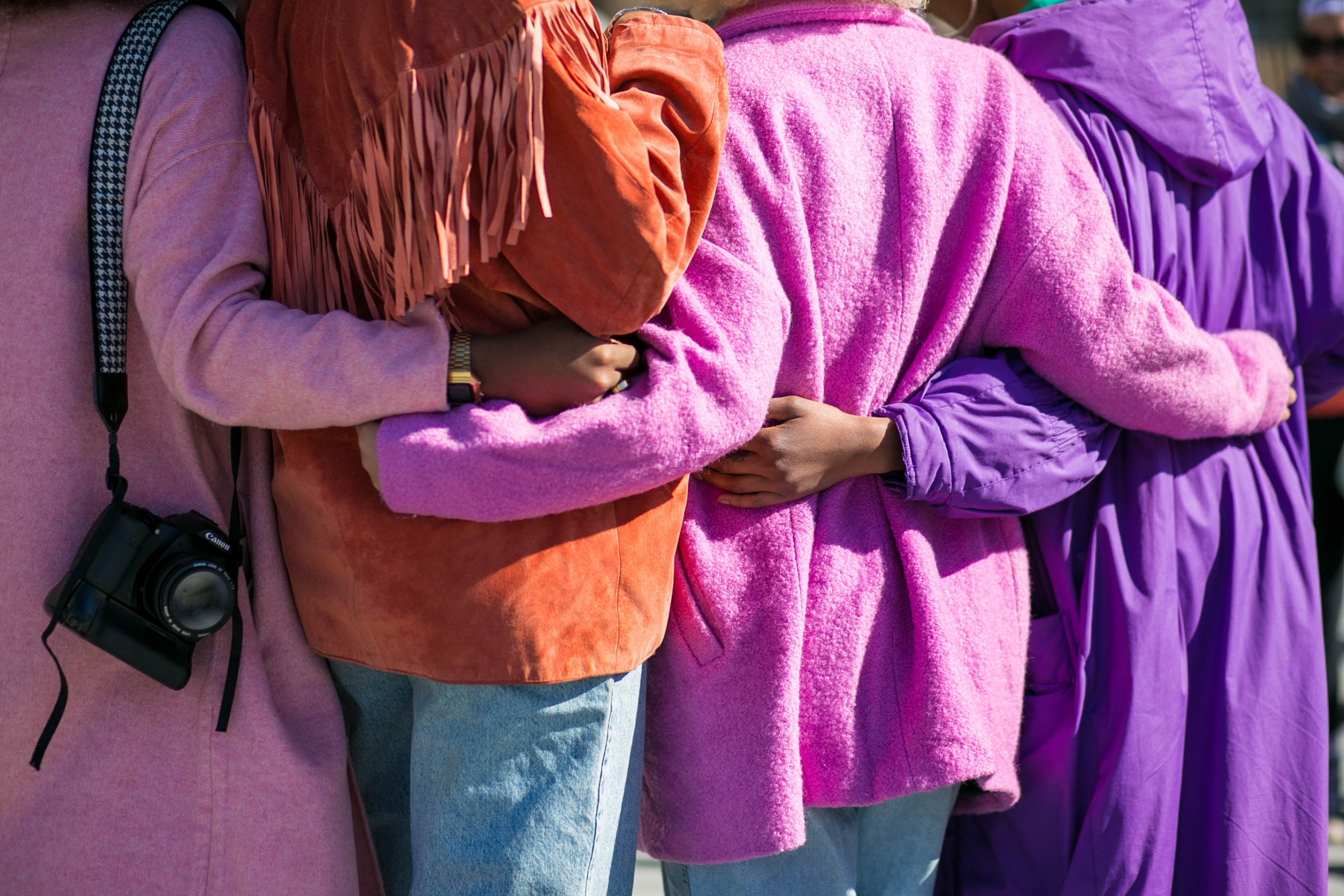“We inter-are”
– Thich Nhat Hanh (1)
With mainstream values of individualism, we will often tend to consider ourselves as separate from others, nature and the world. However, a new research paradigm in somatic neuroscience emerging called “radical embodiment” (2-3) ), shows that the shape of our sense of self differs based on our social context. This has profound consequences for our meditation!
When we feel safe with others, we broaden the edges of our self to include others and when we feel threatened, we tend to close up and narrow our self-construct. And this relational phenomenon has direct impacts on how we experience our bodies and can self-regulate. Because we have a wider sense of self with good friends, actions require less effort than if we were alone or with difficult company. Actions are less “bioenergetically costly” (4) because we assume that others are a part of our body and therefore budget our efforts based on a larger pool of resources. Others literally become resources for us. This means that the people we have around us really affect how we experience our bodies, our immune functions (5) and many other foundational physiological process for basic health.
Moreover, the presence of other people also affect how we relate to ourselves psychologically and attentionally (6) . I have been experimenting with groups of friends and in teaching retreats how paying particular attention to others, and meditating together with short phrases of loving-kindness and noting of one’s present-moment experience offered a different way of connecting to one’ own internal experience. And I totally love it!
I have spent many years in retreat, in silence, alone and certainly benefited in immensely powerful, unique and life-transforming ways from this. I do think that developing this form of self-reliance, calm and depth of commitment to any practice opens to high levels of devotion, insight and transcendent opportunities. AND, there is so much that can also be experienced and explored in relationship and with a deeply trusting relational container.
In NeuroSystemics then, we pay attention to the interaction between relationships and our quality of presence. We learn to practice and nourish a co-created safe space so that we can all go deeper inside and free ourselves from suffering. Being in relationship with others takes some work, and at school we don’t learn basic listening, emotional expression or conflict resolution skills so these do not come easy. However, as we learn to engage with others a participate in the design of a skillful social space, we can all go deeper.
Come and join our next Dharma Gathering or Retreat to further embody this quality!
(1) “Call me by My True Names – The Collected Poems of Thich Nhat Hanh”, Parallax Press, 2005
(2) Raja, V. (2021). Resonance and radical embodiment. Synthese, 199(1), 113-141.
(3) Beckes, L., IJzerman, H., & Tops, M. (2015). Toward a radically embodied neuroscience of attachment and relationships. Frontiers in human neuroscience, 9, 266.
(4)Coan, J. A., & Sbarra, D. A. (2015). Social baseline theory: The social regulation of risk and effort. Current opinion in psychology, 1, 87-91.
(5) Dos Santos, R. M. (2020). Isolation, social stress, low socioeconomic status and its relationship to immune response in Covid-19 pandemic context. Brain, behavior, & immunity-health, 7, 100103.
(6) Sieber, A. (2015). Hanh’s concept of being peace: The order of interbeing. International Journal of Religion and Spirituality in Society, 5(1).



